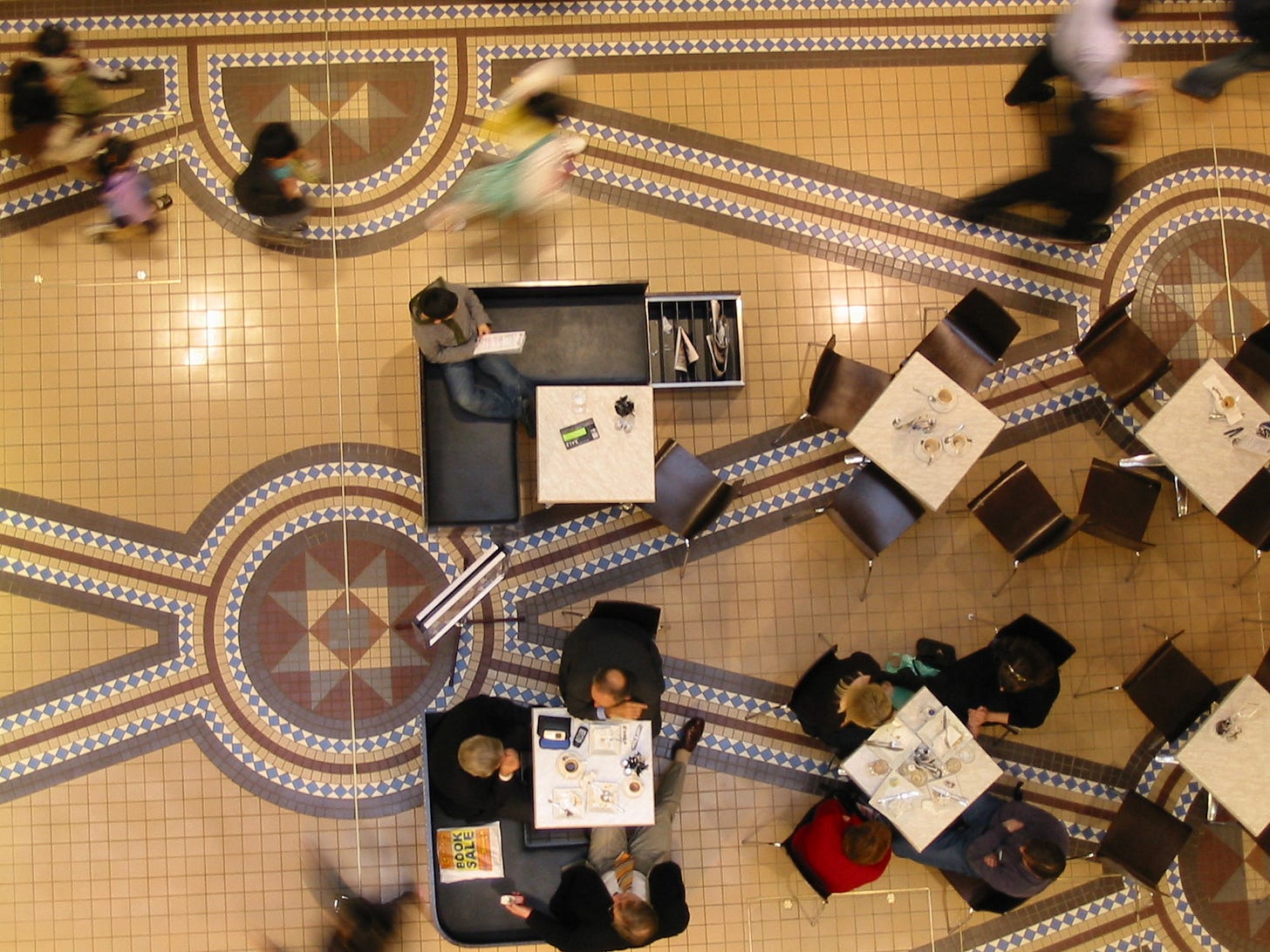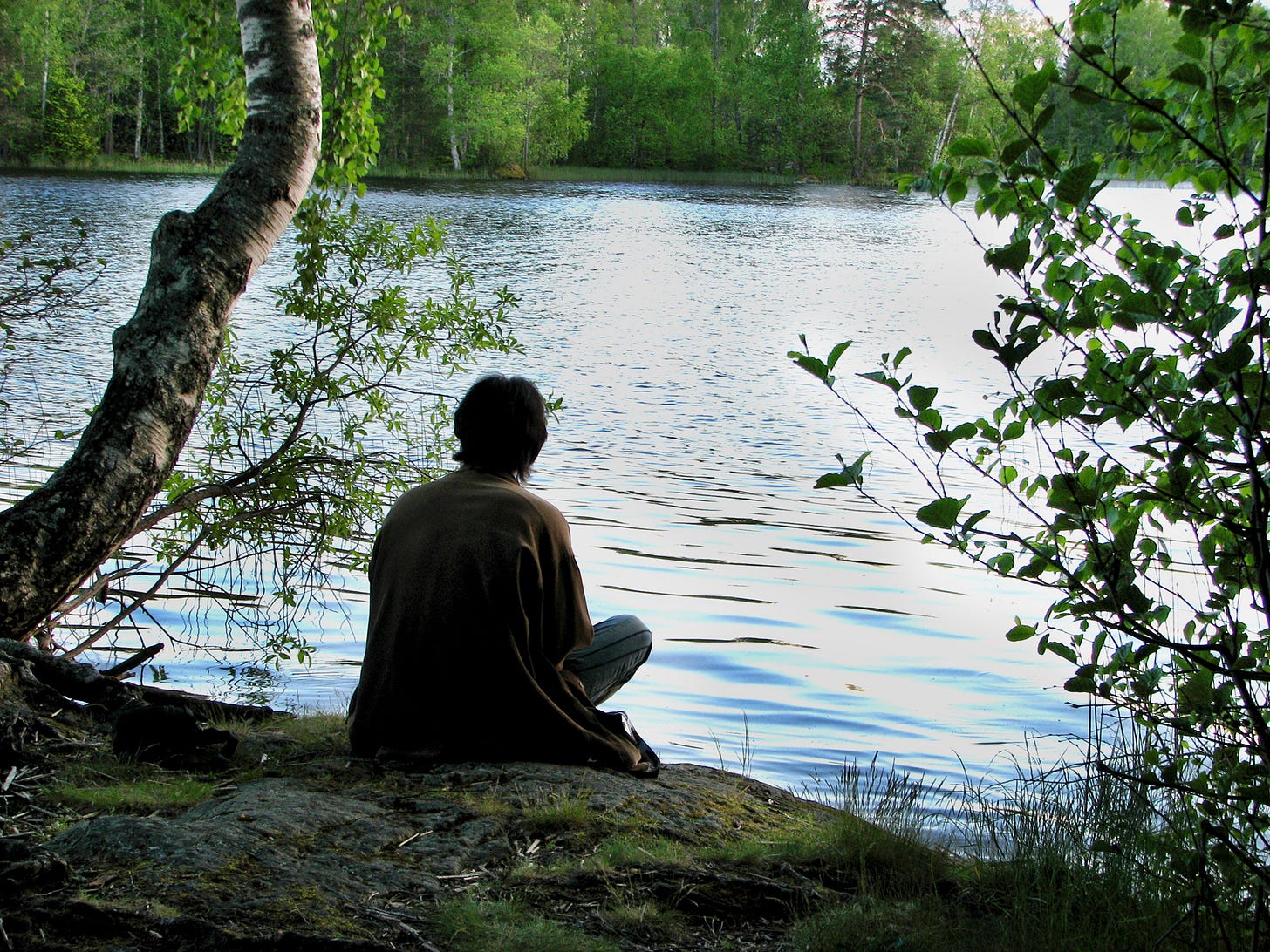1 – The Real Meaning of Secular
Secular – I do not think that word means what you think it means
I gave a talk in French once on “Radical Candour”, inspired by the book of the same name by Kim Scott, the idea that speaking frankly but kindly can avoid that scourge particular to non-profit organisations, “Ruinous Empathy”. (Where the insipid nice-ness avoids hard conversations to the detriment of all). Sadly, I naïvely translated it candeur radicale, and unwittingly urged people to be extremely gullible. I guess I practiced what I preached. My listeners quickly but kindly corrected me, practising my intended preach. The root of my problem was what linguists call a faux ami (false friend), a word that looks similar in two languages but has a different meaning altogether.
What a faux ami we have in the word “secular”! Modern western society is often called a secular society. But what does the word “secular” actually mean? I think we mistranslate it and so misunderstand the society we live in. In fact, we don’t understand what’s at the heart of our society at all. Despite possessing more information, more PhDs, more books, more news sites, blogs, conferences and articles than any era till now, our culture may be the least self-aware of any society in human history. And it starts with the one word we use that most of us agree defines us.
Secular: one adjective among many
People use a lot of words to describe Western society: modern, post-modern, post-post-modern. They say it’s hedonist, materialist, pluralist, multicultural. That its religious sensibilities are secular, spiritual, post-Christian, atheistic. That it’s capitalist, socialist, globalised, Western, humanist, consumerist, producing people who are individualist, relativist, utilitarian, pragmatic, romantic, therapeutic, and expressivist. That we are liberal, polarised, decadent, connected, authentic, conflicted, cynical, scientific, hurried, technological.
These words seem to swirl around like ping-pong balls in a wind-tunnel from which serious thinkers pluck and display them in neat arrangements like Lotto number announcers. Meanwhile, I flounder in them like a kid in a ball pit trying to get purchase. What do they all mean? How do they all relate? Which of them are we?
Amongst all these words, secular is perhaps the most foundational and yet the least understood. It’s a word that describes most people in western societies, and perhaps others like China and Japan, but that few people use to define themselves. So, what does secular actually mean?
Secular equals non-religious?
When people do use the word secular, they mostly mean non-religious, which is partially true but also quite misleading. It’s partially true because it does distinguish religious societies, institutions and people from non-religious ones, like a Muslim country from a Western country, or churchy Charles from bowlo Bob. This is what some would call an anti-identity, which is often used by groups to define themselves against what they are not, like a credit union that says we’re “not a bank” or a “non-profit” organization.
However, describing what something is not doesn’t tell us much about what it is. In fact, in this case, it actually conceals it because it acts like a full stop in conversation and thought. Defining the word secular positively will help us describe what it is and understand its priorities and beliefs.
Secular: a family of origin study
The word secular comes from the Latin word saeculum, which originally referred to the era or time-period of a Roman emperor. It was how they used to mark the years. So instead of your calendar being Lockdown Hobbies of 2021, it was Latest Aqueducts of the 5th year of Caesar Augustus. Time was thought of in cycles, and the Caesar defined which cycle one was in in the present. The era or time period of the emperor was the present age, the secular, but there existed an eternal time, the Elysian Fields of Greek mythology or, as Rusty Crow put it in Gladiator, “what we do in life, echoes into eternity…”.

A millennium later, in the Middle Ages, the word secular was used by the church to distinguish between priests who focused on dirty, smelly peasants in the everyday life in this age and monks who were set apart in stone monasteries to focus on spiritual things of the age to come. The word secular didn’t mean non-religious as we use it; people without religion were thought of as dangerous traitors to society. It meant “of this age”, as opposed to “of the age to come”. The word passed from Latin to old French, still seen in the French word for century, siècle, and then into English. It means of this age, of this century, of the here and now.
Now, etymology isn’t destiny, that is, where a word came from doesn’t necessarily determine its present meaning. However, in this case, studying the family of origin of “secular” can help us better understand the personality of our society.
Charles Taylor – Our Secular Imagination
Charles Taylor, the Canadian philosopher and godfather of understanding secularism, has noted that people use the word “secular” to describe western society at 2 different levels. Firstly, the division of church and state, and, secondly, the decline of religious belief and behaviour amongst the population. These two levels produce all the noise and outrage that constitutes our society’s discussion on the subject. This is seen any time the religious belief of a politician is exposed like dirty underwear, or religion dares to poke its nose outside of the private life of its believers or the latest census with recycled headlines on the slow death of religion or the tedious arguments about a country ceasing or never having been a “Christian society”.
Scooping aside this layer of froth and bubble like a regretful cappuccino buyer, Taylor identifies a deeper third level of “secularity”: a kind of mental perspective we all share, a “social imaginary”, in which God is more of a memory than a reality. It’s seen in the difference between a 15th century society where belief in God is unquestioned and assumed, saturating everything, and a 21st century society where it is optional at best, and harmful at worst. Religion was removed from power, lost its people and is now a minor ghostly presence, from the very air that is breathed to an awkward passing of wind at a dinner party.
Taylor describes in great detail this historical and intellectual development from the Middle Ages through the Enlightenment of the 17th and 18th centuries. (His enormous book A Secular Age is the tomb for many a bookmark; I think his editor skipped that radical candour book) Modern society believes the Enlightenment story, that humanity grew into adulthood as science and reason wiped away childish religion, superstition and myths. Taylor calls this story the “subtraction narrative”, a myth about the destruction of myths. This story is rehashed at an individual level every time someone describes their deconversion story from fuzzy childhood belief in a vague God figure to their present “I’m not religious” position.
Secular society = here and now society
So, a secular perspective is non-religious, because religions speak of the age to come and a secular perspective doesn’t. But a better description is that it’s focused on the here and now. Charles Taylor coined the phrase, “the immanent frame”, to describe this here-and-now perspective. Like a picture frame that ignores everything outside its borders, the immanent frame focuses our attention on the present, the here and now.
The here is a spatial, material place: you can see it and smell it, it’s made of bacon, lego pieces, and green leaves, and it’s measured in frequent flyer miles, guilty calories, and dollars per square metre. The now is a time period, the immediate present, encompassing the recent past (the oldest photo in your phone), and the near future (the Amazon free delivery date), measured in split seconds and wasted days, simultaneously plodding along and flying by.
A secular society is a here and now society. It values tradition and custom far less than other societies. It is consumed by the latest issue, cutting-edge technology, breaking news, hippest fashion, or hottest controversy like sugared-up teenagers playing speed Trouble.
Gadgets define us. Minutes rules us. Change is constant.
Of course, humans are still marked by the past or paralysed by the future, they study history, religion, philosophy, and other decidedly non-here-and-now subjects. In fact, we have more knowledge about these things than ever before.
And yet, for big decisions and ethical questions, for identity, meaning and fulfilment, for filling in the nitty-gritty of life, secular people are guided and located in the here and now, in what we can see, touch and feel in this moment.
The distorting effect of presentism
In past centuries, the here and now was relativized by the age to come and often disparaged. Greek philosophy idealised the spiritual and the eternal and maligned the dirty physical present. The church often divorced the precious sacred from the common secular.
There’s nothing nice about the dictatorship of the past, being blocked by stifling traditions, constricted by rigid caste systems and conforming to a dull, unchanging future. There was no golden epoch in history that had it all nailed, certainly none worth living in without modern dentistry, as P.J. O’Rourke says.
We shouldn’t belittle the here and now; it is, after all, my favourite time to eat in.
Yet in a secular age, the here and now is absolutized and the age to come is trivialized. The present rules supreme, the past is often mocked, and the eternal is forgotten.
François Hartog is a French historian/sociologist who describes our modern relationship with time as presentism. The past is lost to us, the future has turned a bit dark, we live in the tyranny of the present, unable to take a deep long breath.
Carpe diem, seize the day, is one of western society’s slogans. It sure beats “binge-watch the day away”. But there’s a weird thing that happens when one tries to seize the here and now; it slips through our fingers like mist and it enslaves us (Eccles 1:2-3). The day is not ours to seize (Eccles 3:11), it is a rather a gift to be celebrated and used with thankfulness (Eccles 2:24).
Jesus, probably the greatest guru on the secular, lived at a unique pace; purposeful, ready and reacting but never ruled by the here and now. He warned against being stuck in the past (Mark 2:22), obsessing about tomorrow (Matt 6:34) and living solely for today (Luke 12:21). The past of Jesus’ death and resurrection forms Christian faith and the future of his return shapes Christian hope. Living solely in the present neglects them both and cheapens and distorts love, the fuel for daily life.
There’s a lot more to say but here are 3 brief take-aways.
The Here and Now Society
This definition of secular as the here and now helps us get a grip on western society and explains why some of those words I listed at the start reappear so often. There’s nothing more here and now than personal pleasure (individualist, hedonist, materialist, consumerist: “you’re worth it”) and personal feelings (romantic, therapeutic, expressivist, authentic: “trust your heart”), along with the freedom to pursue them (liberal, relativist, utilitarian, “go your own way”). There’s nothing more important than the latest event or ethical issue (progressive, modern, post-modern: “be on the right side of history”) or the latest technology (pragmatic, scientific, technological: “don’t get left behind”). A here and now society devalues and forgets tradition and the past and has a very short memory.
The Here and Now Life
A here and now society leads to a here and now life. Instant gratification isn’t a challenge, it’s our operating mode. Being hurried or busy aren’t strange pains that afflict us, they’re the petrol and coffee that fuel us. What would we say to someone who asked us how we’re going if it wasn’t “busy”? Frankly, why is anyone surprised by short-attention spans, doom-scrolling, binge-watching behaviour in our secular society? It said it on the label, people!
Secular life has an built-in Catch-22: the constant stress and busyness of living for the moment keeps us anxiously occupied, but, as lockdown revealed, its absence leaves us adrift on a sea of incertitude. As Pascal once said, “All of humanity’s problems stem from man’s inability to sit quietly in a room alone”. I’m not sure he’s done the double-blind clinical study to fully prove that statement, but there’s something to it.
The Here and Now Faith
And a here and now life leads to an anxious, brittle faith. John Mark Comer quotes Dallas Willard, saying “the great enemy of spiritual life in our day” is … hurry. Jesus had days when he didn’t have time to eat, but he didn’t lock himself in that treadmill. Have you ever noticed that the temptations Jesus faced by the devil at the start of his ministry were all the seduction of the here and now, of instant gratification? Rather than waiting for bread or for God’s rescue or for the nations of the earth to be given to him, the devil enticed Jesus to seize them there and then, to live as if the here and now were all that mattered. But living rightly in the here and now requires different rhythms, a perspective shift, a determination to wade upstream against the current.
How did we become a here and now obsessed society? This is what’s known as the secularisation question: how did society secularise? The answer is complicated. But there’s one factor I’m convinced is seriously overlooked, even by intellectual giants like Charles Taylor, and it plays a huge role in our beliefs and behaviour every day. But that will come a few posts later.
Next time, why, despite our labels like atheist, agnostic, and believer, we’re all secular people now.
I’ll be posting an article here every 3-4 weeks. Any more than that will end me. If you’d like to receive the next one, just type your email address in the box below and hit subscribe. Thanks for reading.











Thanks Josh. Interesting. If secular = presentism how come so many people ae still anxious about their reputation?